
Waking up to the first rays of the sun in an environment where body, soul, and spirit are in full harmony with nature is a dream come true by small communities that have spread throughout the last 50 years all over the World.
They are micro-oases based on a social structure based on a sustainable lifestyle through the environment. It even seems a fantasy to be able to live in a house built for you or by a community of people who want to make that dream a reality. All made from materials of local nature itself, such as clay, sand, wood or other materials, and in the midst of nature, with no monthly charge to the bank or the state. This house will be framed within a community where social, cultural and spiritual life are driven by cooperation, respect, transparency, and love.
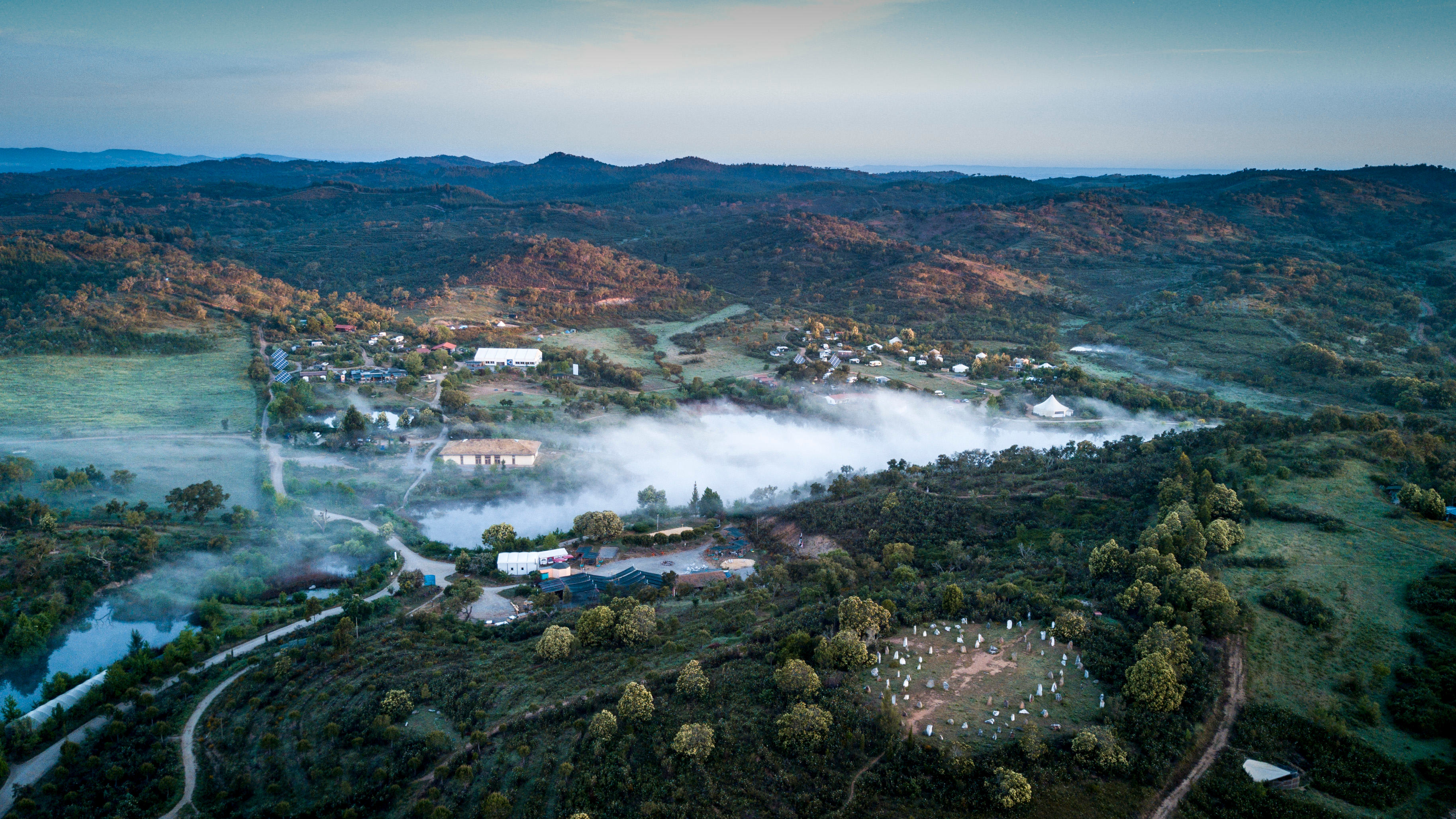
Money, religion, politics or wild economic development do not enter there, nor do values such as excessive individualism, competitive violence, power, control over others or unbridled consumerist spirit… There is an economy based on solidarity and conscious and sustainable consumption.
Ecovillages are considered by many experts to be true bridges between the past and the future since today’s society format is seen as unsustainable. It was no coincidence that these micro-oases were officially nominated in 1998 by the United Nations to be on the list of 100 best practices for sustainable development.
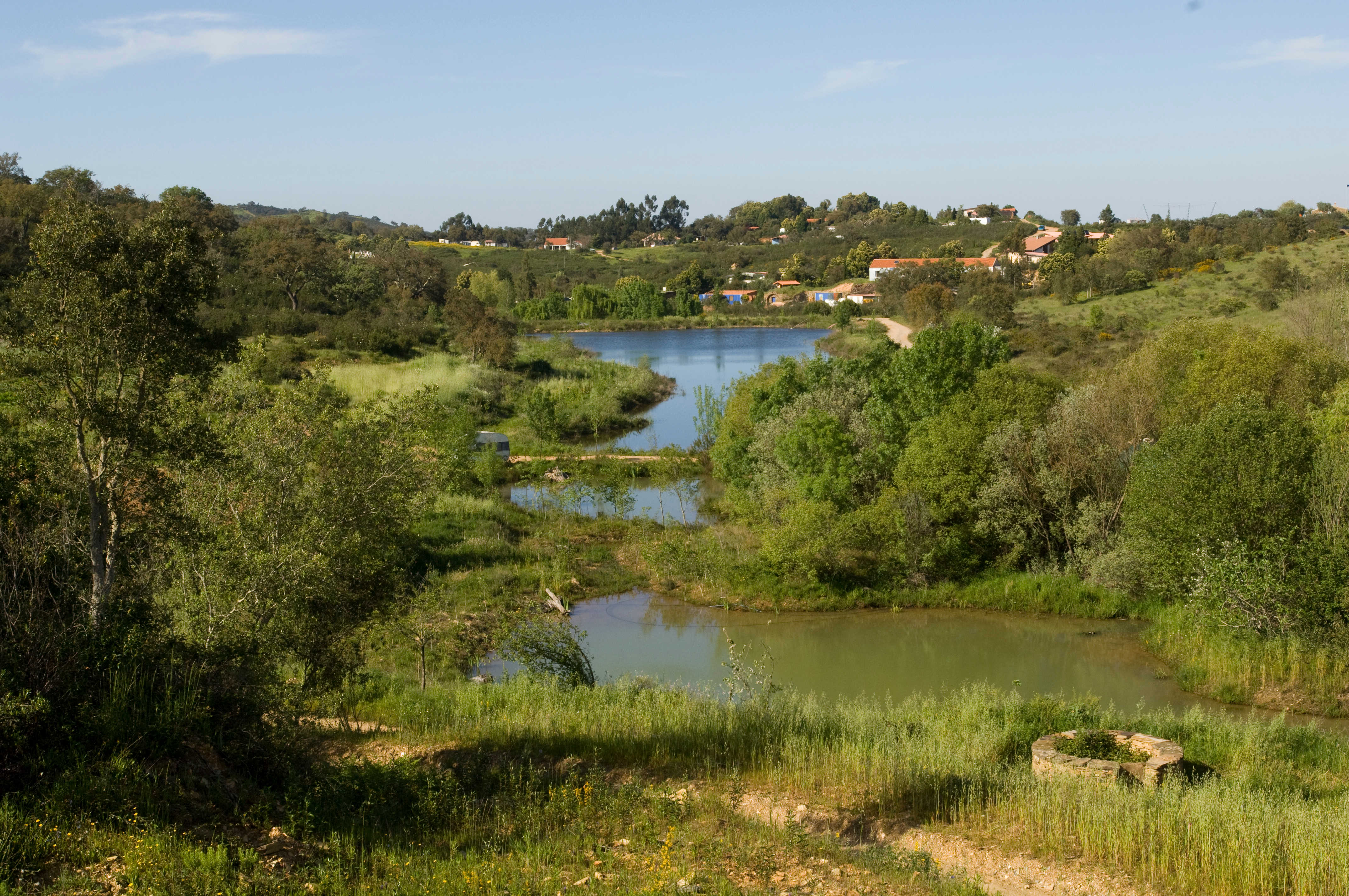
There are many ecovillages around the world and in Portugal there is no exception, from farms or micro-villages with dozens or a little over a hundred people, such as the one in Tamera, Alentejo, the Cento e oito, o Vale Bacinas, Casa Fluxus, Tribodar, Vanaprastha Nabais, Fortuna Verde or Quinta da Cabeça do Mato, among many, many others.
Tamera in Odemira
This project was born in 1978 in Germany, but in 1995 was extended to Portugal, by the hands of Dieter Duhm, Sabine Lichtenfels, and Charly Rainer Ehrenpreis, specifically in the south of the country, on a 134-hectare property, Cerro do Monte, in Odemira. Tamera defines itself as an “international peace research center”, now has visitors and educational areas, including campsites, guest houses, seminar rooms, and an auditorium.
Tamera’s ecological and technological research issues include the implementation of a Water Retention Landscape – for the restoration of the water cycle and ecosystems – as well as a model for regional self-sufficiency in energy supply and nutrition.
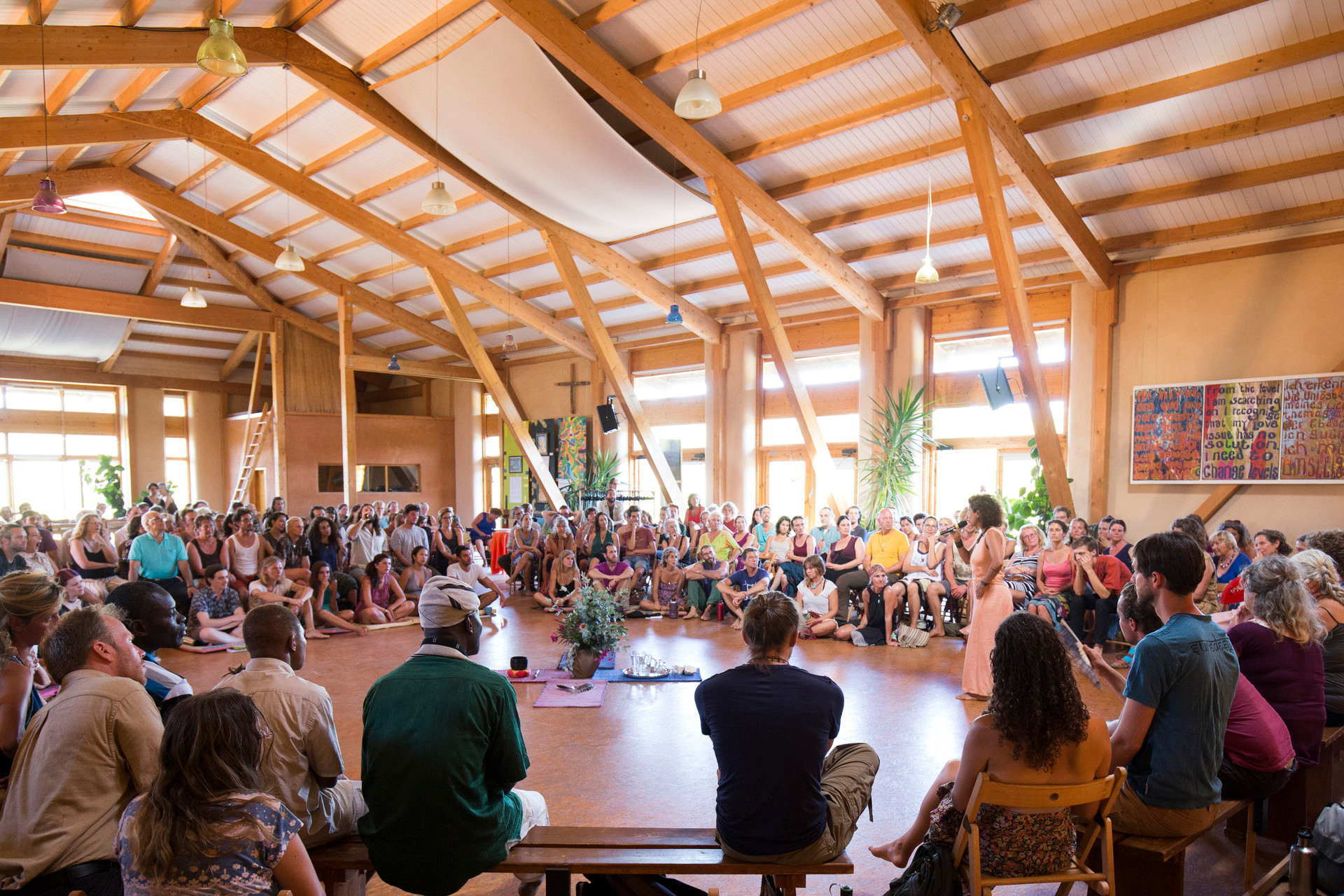
In the mid-2017, Tamera was made up of 170 residents, overwhelmingly German, a presence that is also reflected in the governing structure of this community. This community assumes that it is creating its own constitution, but for now considers the following ethical guidelines: Truth, Mutual Support and Responsible Participation.
“If we follow the path of cooperation with nature, one day we will recognize that a word like “paradise” is no longer just a religious term but a life goal,” says Tamera’s founders on their website. In order to get closer to the Tamerian community, those responsible advise to go first to “The Introductory Week” [costs 500€ (350€ for Portugueses) plus 30€ to pay for accommodation and food (20€ for Portugueses) and 10€ for children over six years old, the rest do not pay]. Only then a possible application to be a resident member will be considered and there is no guarantee that the adaptation will be successful, as some former Tamerians have decided to leave to form competing communities because they disagree with some rules, such as free love or the form of governance.
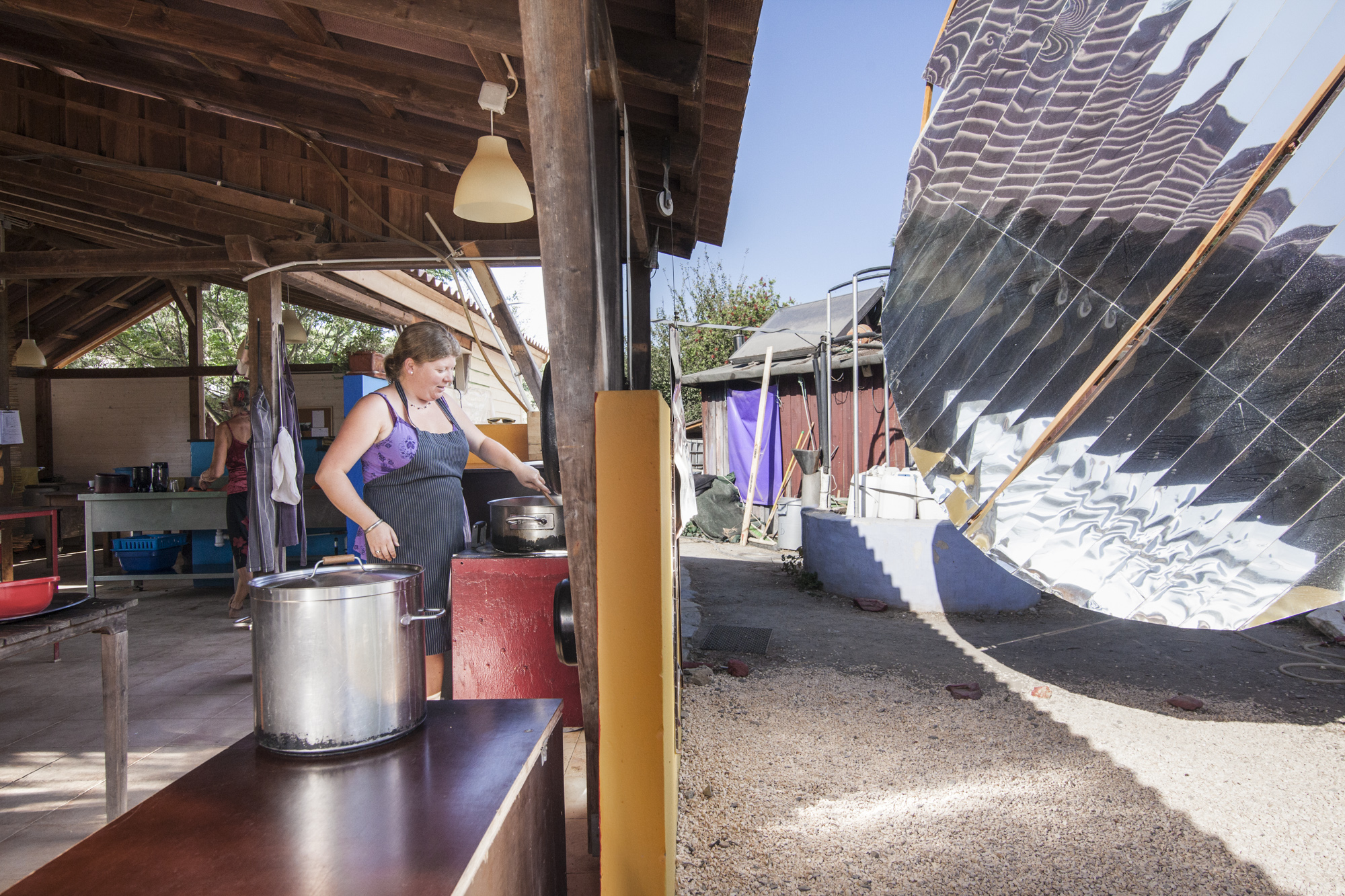
Hence were born Cento e oito or the Vale Bacinas. These new organizations are much smaller than Tamera, which rivals other counterparts that also exist in Portugal such as: Casa Fluxus (Castelo de Vide), Tribodar (Nisa), Vanaprastha Nabais (Alijó) or Lights One Gathering (Valdosente), Fortuna Verde (Mondim de Bastos), Quinta da Cabeça do Mato (Tábua), Terramada (Castro Marim), Casa de Santa Isabel (Seia). There are then several groups and associations related to ecological practices which, however, do not constitute the character of an established intentional community, such as the Associação Aldeia (Vimioso), the Colectivo Germinal (Lousã), the Colher para Semear (Leiria), the Semente de Futuro (Arouca). These groups are mostly created and formed by Portugueses, with numbers generally between 10 and 30 members. Finally, there are also community spaces with a more spiritual focus, such as Monte Mariposa (Tavira), among others (see here several examples).
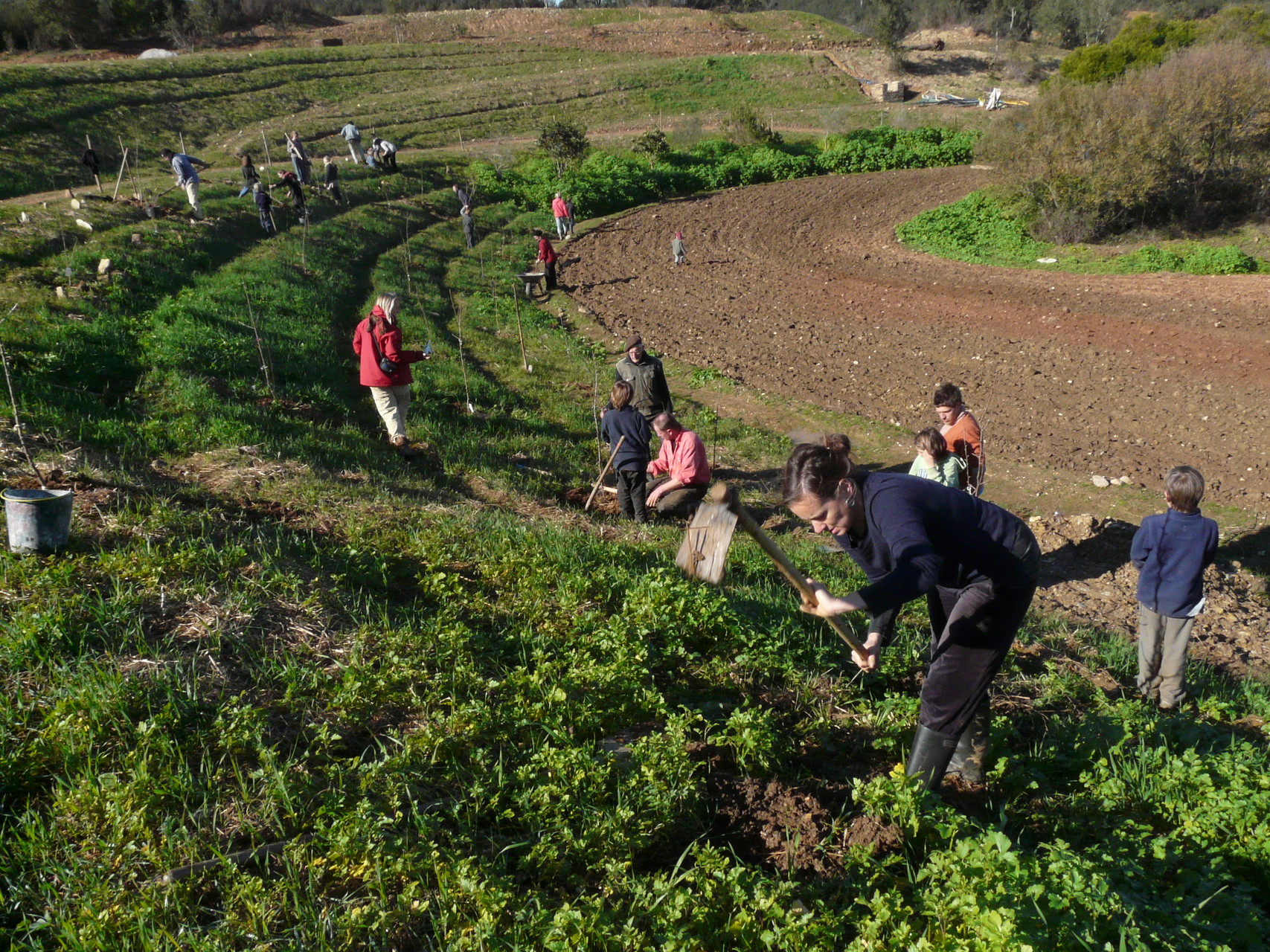
At the international level, the list is very wide and covers the five continents. Noteworthy, however, are Eco Truly Park in Peru, Comunidader Finca Bellavista Treehouse in Costa Rica, Chácara Asa Branca in Brazil, or Arcosanti in Arizona. Findhorn, in northern Scotland, is one of the first ecovillages to be formed, and today it has about 1,000 residents and is one of the most important, being an example in several areas such as sustainability, local economy, and a holistic education (a week of Findhorn experience can cost up to £780). Then on a giant scale is Auroville City, which is the largest community in the world.
Universal City
It was founded on the principles of integral yoga by Mirra Alfassa, in partnership with her partner Sri Aurobindo, to realize a dream: A city of human universal unity, where men and women from all countries can live in peace and progressive harmony, despite their beliefs, political orientations or nationalities. It sounds like a fantasy, but Auroville is a real city, near Pondicherry in the southern Indian state of Tamil Nadu. Currently, it has about 4,200 residents from 45 countries (about one-third of them Indian), as well as visitors.
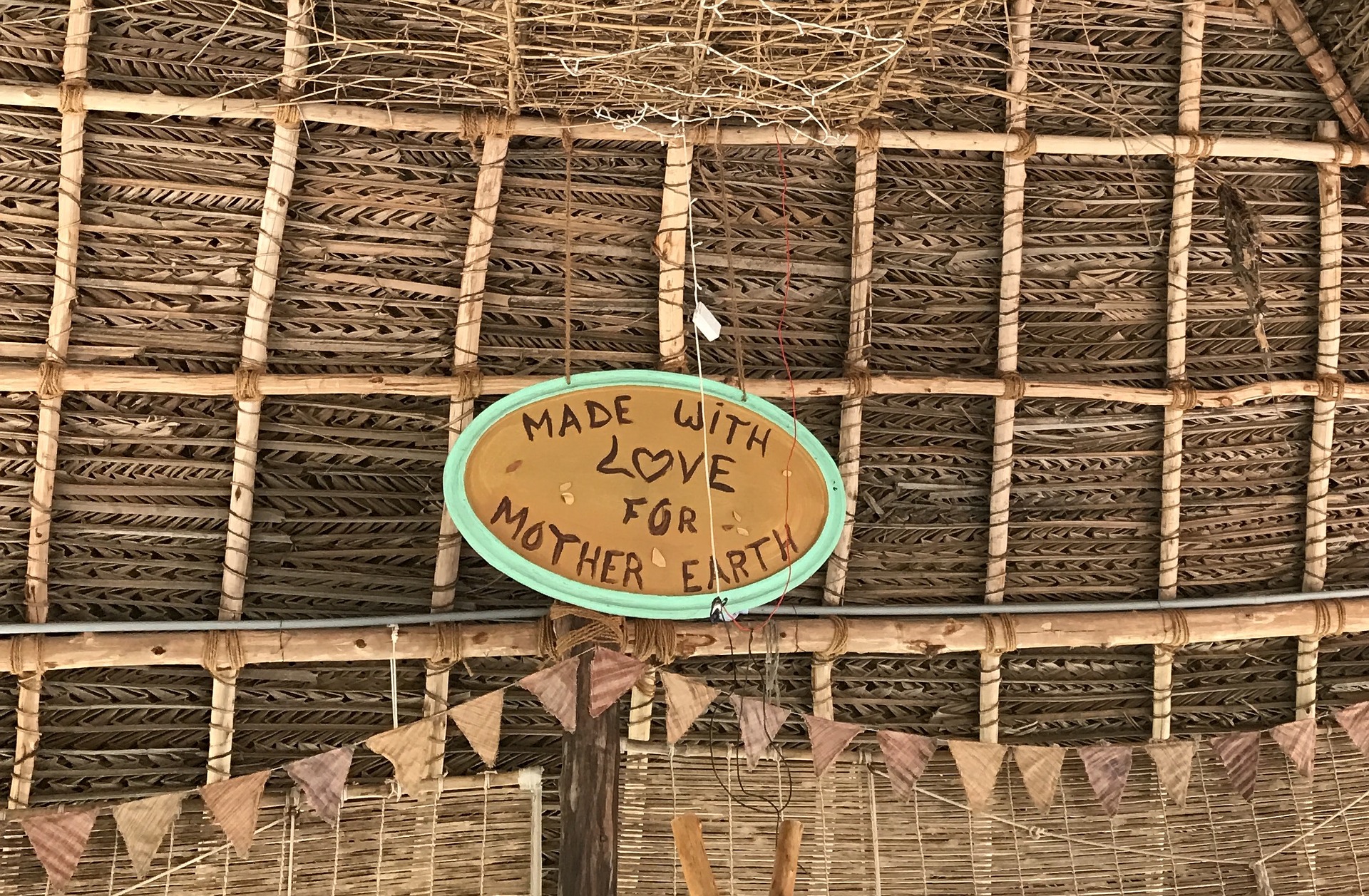
Prepared to receive up to 50 thousand people. The concept of the Auroville city began to be thought of in 1930, but it was not until 1960 that the Sri Aurobindo Association presented the project to the Government of India which agreed to start the works. And in 1966, it also received the blessing of UNESCO which considered it an important project for the future of humanity. On February 28, 1968, in the presence of the President of India and representatives of 124 countries, the City of Dawn was inaugurated.
Auroville was created by the imprint of the French architect Roger Anger, at the invitation of Mirra Alfassa [Auroville’s Mother]. He developed the city in a spiral shape, symbolizing human evolution, where in the center was the peace zone, the Temple of Matrimandir. It is the ex-libris of Auroville, a symbol of a new consciousness, a giant golden sphere-shaped building with a majestic amphitheater set beside a tree called Banyan, over 100 years old and owner of a canopy with a diameter about 50 meters.
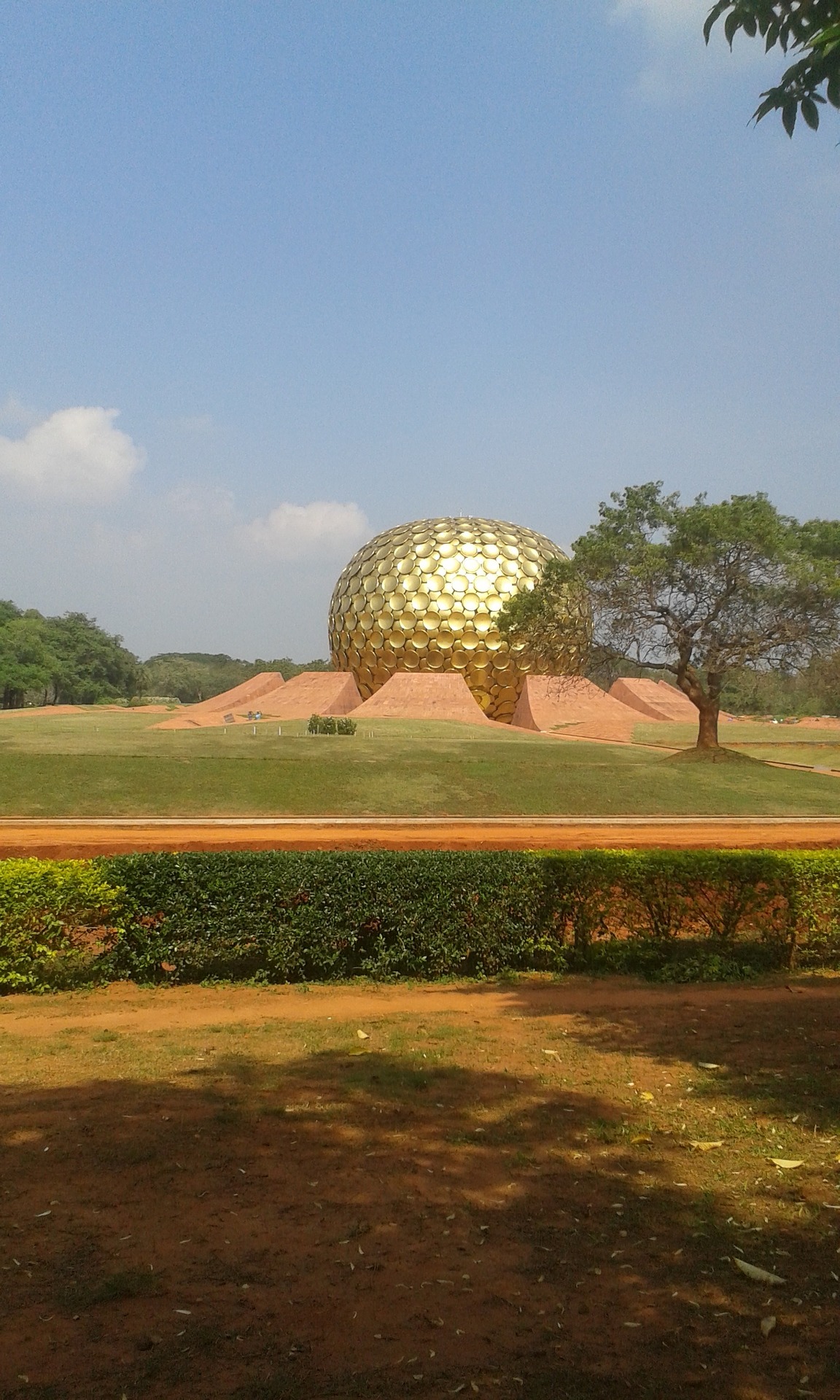
Around the Matrimandir Temple, the center of the spiral, the residential, cultural, international and industrial (environmentally friendly) zones were created, with a green belt, an organic farming area, a forest and a preservation area in the outer ring. Altogether Auroville is framed in 25 square kilometers. Aurovilleans focus on transforming consciousness through a self-sustaining life into harmony and respect for nature so that there is a cultural, spiritual and social development for all, including the surrounding communities. This vision is fostered by the city’s owner, the Auroville Foundation, and the population who elects representatives twice a year to the Auroville working committee and council positions. In this community, there are no political or religious leaders, although the commandments of founder Mirra Alfassa are admired and followed by all, nor hierarchies, as the most important decisions are taken at the general assembly, where each person represents one vote and the majority decides.
As for money, there are internal and even cross-border business transactions, such as selling their own products online on their website, although a kind of prepaid card is used within Aeroville.
All members of the community are entitled to a minimum monthly remuneration to meet basic needs (resident prices are much lower and in some cases accept payment for services rendered) and also pay a contribution towards maintaining basic infrastructure and services of the city.
Auroville’s doors are open to all. It is possible to spend a few days as a tourist and stay in a hotel or guest house, which amounts to about 17€ per day, depending on what kind of life you choose to do. But you can also stay a longer period (two, six months or more months) as a newcomer and in these cases, you still have to pay the monthly contributions, the initial fee (about 100€) and a deposit of the price of the travel return ticket. Only after a first experience is it possible to apply for a resident visa, which is analyzed, case by case, and the bureaucracy is much more demanding.
The Auroville dream has almost half a century of life and despite many defects, because it also has some, as evidenced in the various reports found on the net, the virtues overlap so that you can think after all it is possible to live a different society from the current.
Reinforce your awareness in:
10 Ecovillages and Communities to Know Before You Die




